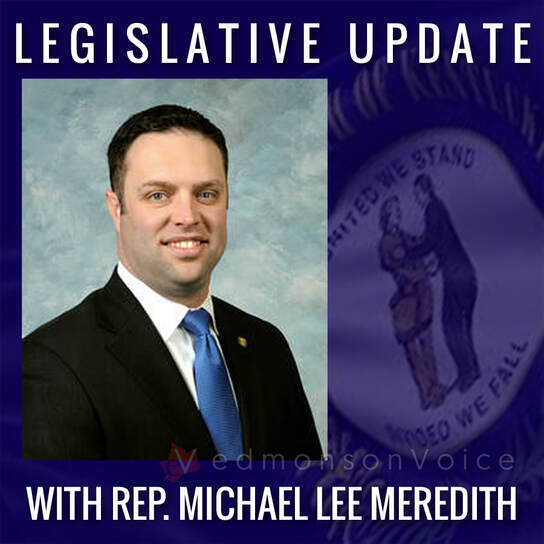|
Legislators wasted no time passing legislation upon returning to Frankfort for the second part of the session. The House of Representatives and the Senate voted to override six vetoes issued by Governor Beshear. The legislation vetoed included bills that protect the unborn, better defined legislative and executive branch powers, and help Kentuckians deal with the COVID pandemic. Ordinarily, all six bills would become effective once the Secretary of State signs them because they include emergency clauses. The bills vetoed are the result of months of careful consideration and input from stakeholders and constituents.
The Governor filed a lawsuit challenging three of these bills within minutes of our overrides, so their fate remains in the hands of a Franklin County Circuit Judge. The Judge partially granted Governor Beshear’s request for an injunction by blocking HB 1 for thirty days. The court’s order denied the restraining order and injunctive relief requested by Governor Beshear on SB 1 and 2, which remain law. HB 1 provides direction to help businesses, schools, nonprofits, and other organizations remain safely open throughout the rest of this pandemic. It gives employers some relief in making their unemployment insurance payments. The measure also includes a provision that ensures visitation opportunities for those in long-term care and children in state custody. SB 1 balances the need for Kentucky to act quickly in an emergency but ensures that a governor does not overstep his or her authority and attempt to legislate through executive orders. SB 2 prevents the executive branch - including unelected appointees - from using the regulatory process to make laws. Lawmakers in more than half the states have filed bills this year to limit the emergency powers of their governors. State legislatures generally took on lesser roles after the pandemic hit. It has been governors or their top health officials who have set many of the policies — imposing mask mandates, limiting public gatherings and shutting down churches, dine-in restaurants, gyms, hair salons, and other businesses. Kentucky is so diverse that a one size fits all approach does not work for our state. Those of us who call Southcentral Kentucky home have different life demands than those who live in Louisville and Lexington. I certainly see the need for a quick response but also want to move toward a system where one or two people don’t have the ability to dictate the terms of everyone’s life without input from constituents. We are still reviewing all budget options that will address the economic, educational, and financial fallout from the COVID pandemic. I fundamentally believe that state spending should reflect our commitment to responsibly invest tax dollars into programs that benefit the people of Kentucky while being conservative and using federal money wisely because it is one-time money and we have too many struggling Kentuckians for it to be wasted. Typically, the budget covers two fiscal years, but it would have been irresponsible to adopt a two-year plan when we had no idea what COVID would do to our state’s resources or needs. The plan we craft this session will guide state spending from July 1, 2021 until June 31, 2022. The Consensus Forecasting Group, who makes the projections used for state budget development, provided some positive news, as they believe that the state’s General Fund receipts will increase $17 million to $11.729 billion for the current fiscal year. They also estimate an increase of $53 million for the 2022 fiscal year, which covers the budget we will pass this session. While this is good news, I cannot stress enough that this is only an estimate, and it is based on a lot of variables. The pandemic has shed light on the different struggles our citizens are faced with, providing us the opportunity to positively impact Kentuckians with legislation that will have long term impacts. HB 7 creates an advisory council that will create a Recovery Ready Certification for Kentucky communities. The council will be tasked with coming up with standards for communities looking to help those recovering from substance abuse as well as providing guidance to communities in developing high-quality recovery programs. By putting this council in place, state and local governments can work together to get the most out of every resource available for recovery. Another measure aimed at helping Kentuckians during the pandemic is HB 10. The bill creates layers of protection for business owners, schools, local governments, medical procedures, religious entities, and individuals in the event of COVID-19 related litigation. Small businesses are the foundation of this Commonwealth. Sadly, many have closed while others are barely hanging on. This measure eliminates the barrier of COVID-related liability for businesses as they are trying to rebuild. Finally, I would like to explain why I voted to pass SB 120. The bill seeks to keep historical horse racing machines operating in the state by changing the statutory definition of pari-mutuel wagering to include them. Kentucky’s historic horse racing facilities have been operating for over a decade and have brought significant investment and revenue to increase purses in races which has helped our horse industry from the owners and trainers to farmers and other suppliers. Several tracks would have closed and thousands of jobs would have been lost at the facilities had we not passed SB 120. At a time when thousands of people are on unemployment because of the pandemic, and many have been unable to access the benefits they are entitled to, I find it unconscionable for us to take a vote that would add to these numbers. In addition to the jobs that would have been lost at these facilities, thousands of other jobs across the state’s signature horse industry would have been lost. Over 60, 000 horse farms would have been negatively impacted if the measure had not passed and millions of dollars of tax revenue would have disappeared as well. We are going to make each of the days we have left count so that your voice is heard. Over the next few weeks, I will continue to update you on our progress. In the meantime, I can be reached here at home anytime, or through the toll-free message line in Frankfort at 1-800-372-7181. If you would like more information, please visit the legislature's website at www.legislature.ky.gov or you can email me at [email protected].
1 Comment
Al Gibson
2/23/2021 08:44:35 am
Thank you for the update, your diligence and professionalism in these proceedings, Representative Meredith.
Reply
Your comment will be posted after it is approved.
Leave a Reply. |
Archives
July 2024
|
|
Copyright 2014-2024 The Edmonson Voice.
The Edmonson Voice logos are registered trademarks. Call or text: 270-597-6550 [email protected] PO BOX 94 BROWNSVILLE, KY 42210 CLICK HERE FOR DEADLINE INFO |








